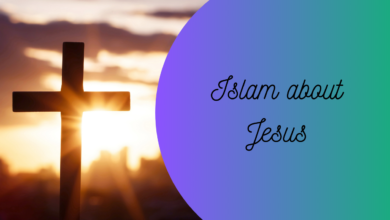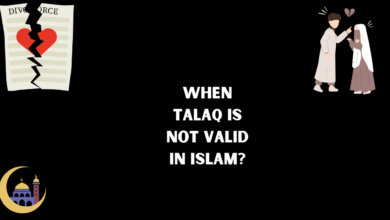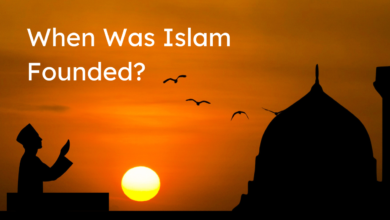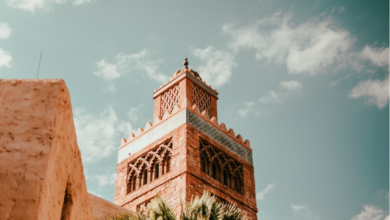Who is the Father of Islam?

Introduction
Islam, one of the world’s major religions, emerged in the Arabian Peninsula during the 7th century CE. The religion’s founding figure is Prophet Muhammad, a charismatic leader, spiritual guide, and social reformer. Often referred to as the “Seal of the Prophets,” Muhammad’s life and teachings laid the foundation for Islamic faith, ethics, and culture.
Prophet Muhammad: Historical Context
Muhammad was born around the year 570 CE in the city of Mecca, which is located in present-day Saudi Arabia. He belonged to the influential Quraysh tribe, which held significant authority in Mecca. During his early life, Muhammad was known for his integrity, kindness, and contemplative nature. He frequently withdrew to the cave of Hira for meditation and reflection.
Revelation and Prophethood
At the age of 40, Muhammad’s life took a momentous turn when he received the first of a series of revelations from the Angel Gabriel. These revelations, comprising the Quran, the holy book of Islam, conveyed messages from the divine to guide humanity’s beliefs and actions. This marked the beginning of his prophethood.
Muhammad’s teachings emphasized monotheism, social justice, compassion, and moral conduct. He called upon people to worship the one true God and to treat one another with fairness and respect, regardless of their social status, ethnicity, or background.
Spread of Islam
Muhammad’s teachings faced resistance from the leaders of Mecca, who were reluctant to abandon their polytheistic practices and economic interests tied to the city’s religious center. Despite persecution and challenges, Muhammad and his followers, known as Muslims, endured and eventually migrated to the city of Medina in 622 CE. This migration, known as the Hijra, marks the beginning of the Islamic calendar.
In Medina, Muhammad not only continued his role as a spiritual leader but also became a statesman and legislator. He established a model of governance that emphasized consultation, justice, and communal welfare. The Medina Charter, a historical document, serves as a testament to his efforts in fostering social cohesion among diverse groups.
Muhammad’s Legacy
Prophet Muhammad’s legacy is profound and far-reaching. His teachings laid the groundwork for a comprehensive way of life encompassing faith, ethics, family values, social justice, and governance. The Quran, which Muslims believe to be the literal word of God, continues to guide the lives of billions of people around the world.
The Hadith, a collection of sayings and actions of Prophet Muhammad, provides additional insights into his character and guidance on various aspects of life. His emphasis on compassion, humility, and selflessness has left an indelible mark on the Islamic ethos.
Conclusion
While Prophet Muhammad is not biologically considered the “father” of Islam, he is undoubtedly its central figure and guiding light. His life and teachings continue to inspire Muslims to live with purpose, empathy, and devotion to God. Muhammad’s role as a prophet, leader, and example of ethical conduct makes him the spiritual father of Islam, and his legacy resonates through the ages as a source of guidance and inspiration.
FAQs about the Father of Islam
Who is considered the father of Islam?
The father of Islam is Prophet Muhammad, also known as Muhammad ibn Abdullah. He is considered the final prophet and the central figure in Islam.
What role did Prophet Muhammad play in the development of Islam?
Prophet Muhammad played a pivotal role in spreading the teachings of Islam as revealed to him by Allah (God) through the angel Gabriel. He conveyed the Quranic message to humanity and established the foundation of Islamic beliefs and practices.
When did Prophet Muhammad live?
Prophet Muhammad was born in Mecca, in present-day Saudi Arabia, in the year 570 CE. He began receiving revelations from Allah through the angel Gabriel at the age of 40 and continued his mission until his passing in 632 CE.
What is Prophet Muhammad’s significance in Islamic belief?
Prophet Muhammad is highly revered in Islam as the final prophet and messenger of Allah. His teachings, actions, and sayings (known as Hadith) provide guidance for Muslims in matters of faith, morality, and daily life.
How did Prophet Muhammad’s teachings become the foundation of Islam?
The revelations received by Prophet Muhammad were compiled into the holy book of Islam, the Quran. His actions and sayings, as recorded in Hadith, further elucidated the teachings of Islam and became essential sources of guidance for Muslims.
Did Prophet Muhammad establish the Islamic community?
Yes, Prophet Muhammad established the first Islamic community in Medina after facing opposition in Mecca. This marked the beginning of the Muslim ummah (community) and the expansion of Islam beyond a spiritual message into a comprehensive way of life.






